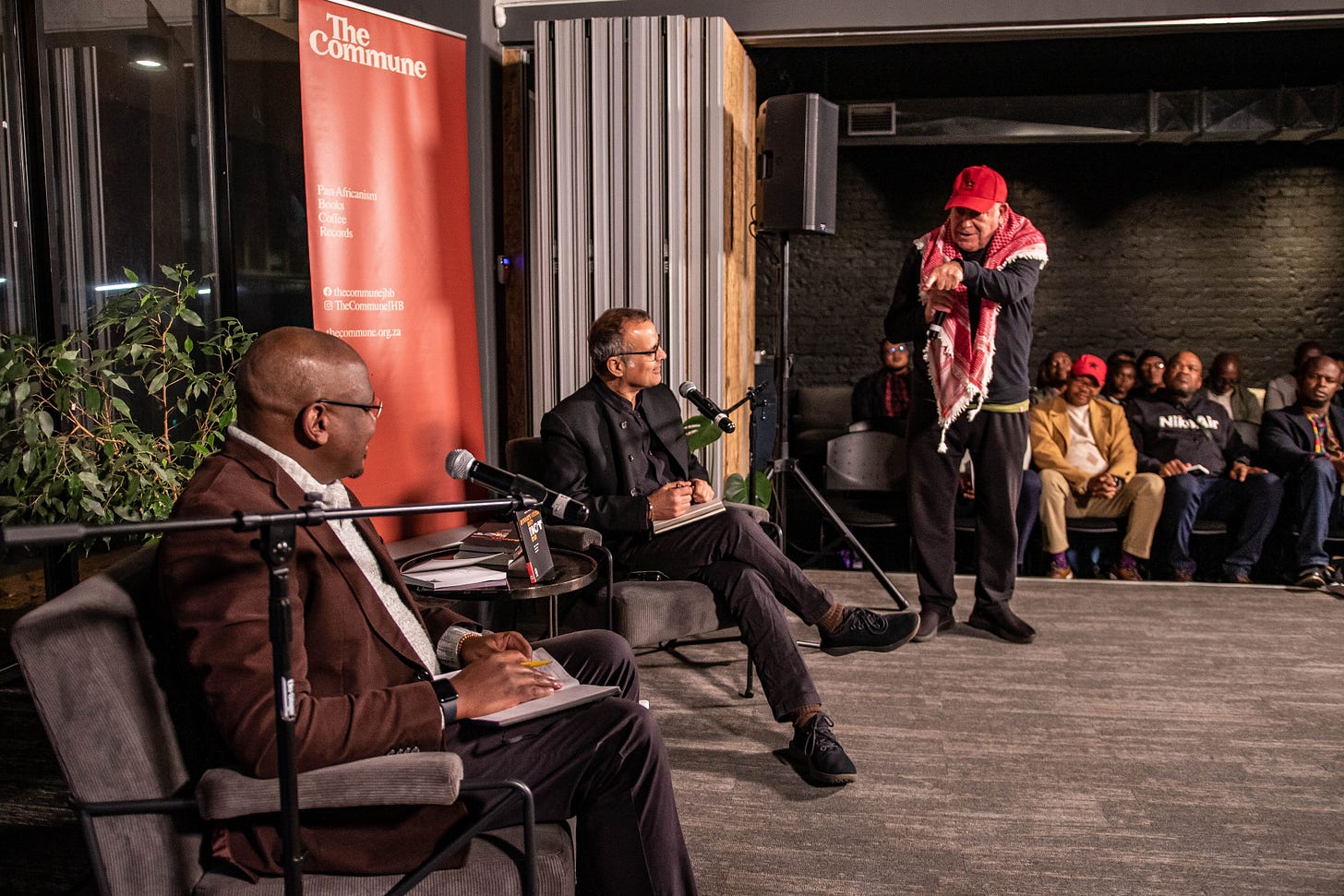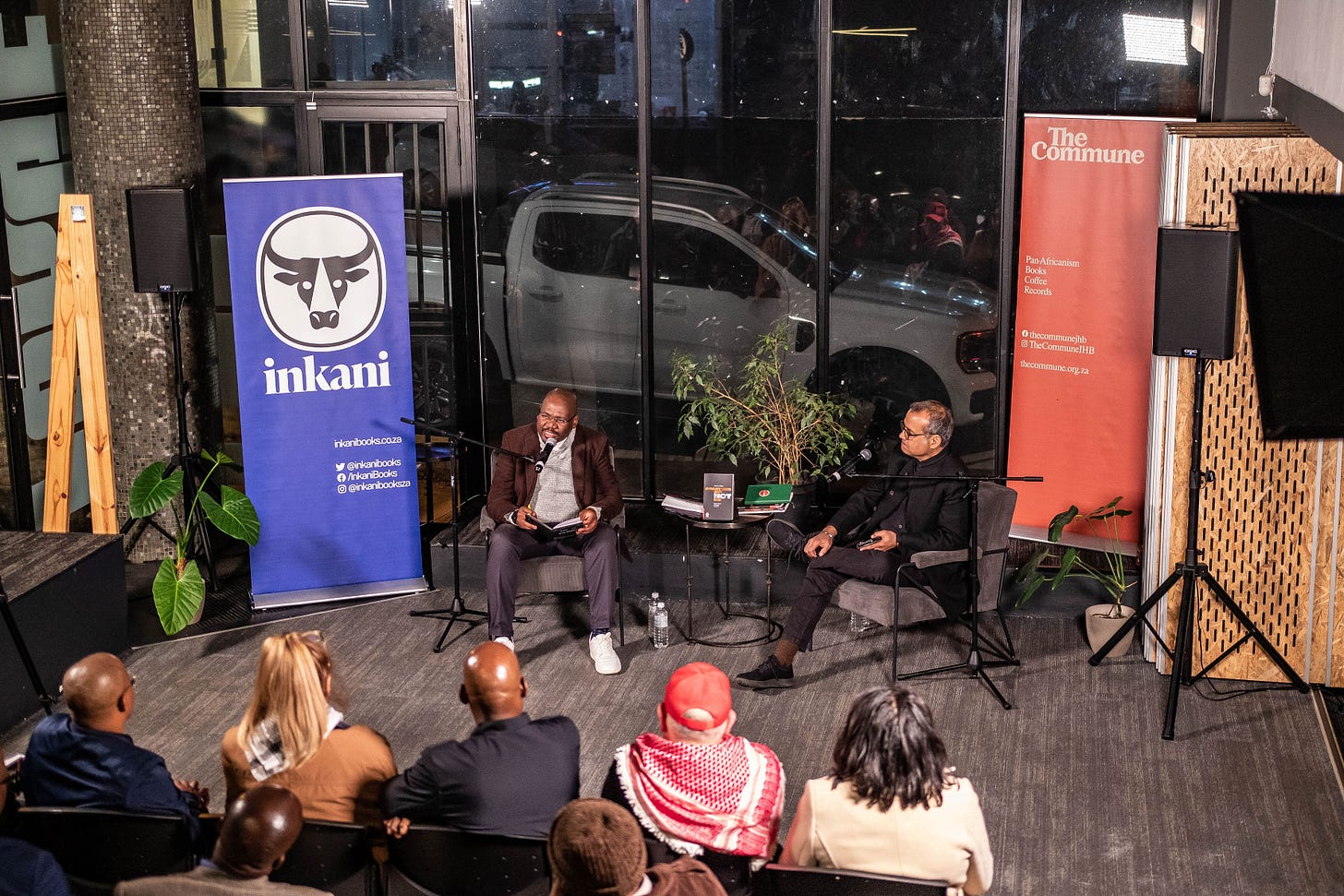[This series of substack essays is about the books that I have been involved in making for LeftWord Books (New Delhi, India), Inkani Books (Johannesburg, South Africa), and La Trocha (Santiago, Chile). At each of these publishing houses, I play a role as an editor, both to commission books and to edit them. The books I am going to write about in this series are, therefore, books that I have had a hand in, so my words should be taken in that context. From Tricontinental: Institute for Social Research, we published a dossier on The Joy of Reading (no. 85, February 2025 – available in Assamese, Bahasa Indonesian, Bangla, Farsi, German, Gujarati, Hindi, Kannada, Portuguese, Punjabi, Spanish, Tamil, and Telugu; if you want to translate it into any other language, please contact celina@thetricontinental.org). This dossier captures, for me, the essence of why we publish books, why we read, why we encourage dialogue and debate to sharpen our own understanding of a world that we want to change. This is the spirit of this series of essays on the books from LeftWord, Inkani, and La Trocha]
When he was twenty years old, Mandla J. Radebe went to vote for the first time in the Catholic Church just after Nugget Street in Johannesburg, South Africa. Mandla did not vote that day because he had come of age and so was now eligible for the franchise. In fact, as an Africa, he had been barred from voting due to the apartheid system set in place by the racist regime in 1948.
Mandla with friends, Soweto, 1990s.
Now, in April 1994, after an agreement between that racist regime and the African National Congress (ANC), led by Nelson Mandela, Mandla was able to enter the church and vote. When he left the church, he ran into a soccer buddy, Lele, and they both threw their fists in the air and said, ‘Viva ANC’. When the results came out, the ANC (and its tripartite alliance with the South African Communist Party and the Congress of South African Trade Unions) was triumphant, taking 12.24 million votes out of the 19.7 million votes cast, which meant that it won 62.65% of the vote (converted to 252 seats of the 400 in the National Assembly). Nelson Mandela was elected as the President of the new South Africa. It was a moment of great jubilation around the globe.
Thirty years have passed since Mandela took office. In national election after election, the tripartite alliance led by the ANC held onto more than 60% of the vote (1999 – 66.35%; 2004 – 69.69%; 2009 – 65.9%; 2014 – 62.15%), dipping below that threshold first in 2019 (57.5%) and then dramatically in 2024 (40.18%). But even in 2024, if you add in the two breakaway political groups from the ANC tripartite alliance, the MK of Jacob Zuma and the EFF of Julius Malema, you get a majority of 64.28%. There are fractures, but there is also a consistent mandate for the parties of the liberation struggle and their successors.
At the book launch with Mandla at The Forge (Johannesburg)
Thirty years on, the promise of the South African democratic breakthrough has been a disappointment to millions of the African poor. Inequality rates have increased, and poverty is growing. Gated communities exist alongside squatter settlements. Crime is a bourgeois indication of the social crisis, but from the standpoint of the working-class it is essentially hunger that indicates their permanent situation of calamity. It is in this context that Mandla has written a new book from Inkani Books that assesses South Africa, thirty years after that day of the epochal election. Apartheid Did Not Die: South Africa’s Unfinished Revolution is only 150 pages, but in these pages, Mandla – who teaches at the University of Johannesburg – drives his story with compassion and verve. He understands the dialectic of South Africa, being a committed member of the South African Communist Party. There is no romanticism here or impatience with the difficulties of the development agenda. I won’t go into the book in detail because I want you to read it and to debate it. It is available here worldwide. Please get it and get involved in a discussion about the future of South Africa.
With Blade Nzimande, National Chairperson of the South African Communist Party, with Fiona Tregenna, South Africa Research Chair at the University of Johannesburg, and with Lucky Thekiso.
At the launch, which was very well attended and which took place at The Forge in Johannesburg (subscribe to its mailing list here), Mandla and I discussed the context of that election in 1994. The Soviet Union and the eastern European communist state system had collapsed, which allowed the United States to drive a unilateral agenda. This agenda included a trade, finance, and development policy through the newly formed World Trade Organisation (1994) and through a vitalised International Monetary Fund and World Bank. Neoliberalism was rampant, and the US administration of Bill Clinton refused to allow any space for an alternative economic policy.
Ronnie Kasrils tells us a story
Mali, for instance, led by the liberal Alpha Omar Konaré, was not given debt relief to complete the National Pact of 1992, and having failed led to complete state collapse within a decade as predicted by Konaré to me in an interview in the 1990s. It was in this context that the tripartite alliance failed to confront the imperialist order, and instead remained within the terms set by neoliberalism in its Growth, Employment, and Redistribution (GEAR) strategy, a mechanism to self-inflict neoliberal policy on the population. Mandla’s book settles accounts with this kind of state policy. That is the easy part.
The harder part is to see what was accomplished and what was partly accomplished. The major difficulty faced by the tripartite alliance in a context where private property was not to be touched, was to dismantle the racist structure of the economy – colonialism of a special type, it was called, and colonialism it remained because of the agreement made between the ANC and the apartheid regime at the time of the transfer of power. This inability to dismantle the racial economic structures has inflicted an enormous penalty on the people of South Africa, on the ideas of the freedom movement, of the importance of the Freedom Charter, and on the struggles of the left. The issue of the racial structure remains vital today, and Mandla deals with it honestly and brutally.
Finally, for this note on the book, he has a very good chapter on the internationalism of the ANC alliance, and its role in leading the struggle against the genocide in Gaza. As much as the alliance has been unable to dismantle the racist structure of the economy, it has maintained its values when it comes to internationalism and to building solidarity with struggles outside its borders. This is not always the case, and there have been times when South Africa’s government has sent its own forces into the wrong side of conflicts (such as against the insurgency in Cabo Delgado, Mozambique). But, the South African flag flies with pride in the heart of Palestinians for the case that the country brought against Israel at the International Court of Justice.
With Solly Mapaila, General Secretary of the Communist Party of South Africa.
Mandla’s book is not perfect. But it is the continuation of an argument that needs to be continued in the spirit of the freedom movement and to liberate South Africa from the wretchedness both of the racial and capitalist structure of the economy. Mandla writes with clarity. He writes with compassion. He is, after all, the man who thirty years ago walked to vote with enthusiasm. That enthusiasm was not for this or that party, but for the emancipation of South Africans and humanity. He retains that hope in this wonderful book.









